| |
| |
-
DMS 4833 INT - Vascular Clinical III Credits: (3)
Typically Taught Summer Semester: Full Sem
Description: Continuation of DMS 4832 .
|
| |
-
DMS 4841 INT - Breast Clinical Credits: (3)
Typically Taught Spring Semester: Full Sem
Description: A minimum of 24 hours per week performing breast sonography examinations.
Pre-requisite(s): DMS 4510 Breast Sonography.
|
| |
-
DMS 4911 - Cardiac Comprehensive Review Credits: (1)
Typically Taught Fall Semester: Full Sem
Description: Review and requirements for advanced responsibilities of the cardiac sonographer.
|
| |
-
DMS 4912 - Medical Comprehensive Review Credits: (2)
Typically Taught Fall Semester: Full Sem
Description: Review and requirements for advanced responsibilities of the medical sonographer.
|
| |
-
DMS 4913 - Vascular Comprehensive Review Credits: (1)
Typically Taught Summer Semester: Full Sem
Description: Review and requirements for advanced responsibilities of the vascular sonographer.
|
| |
-
DMS 4921 - Workshops, Conferences and Telecourses Credits: (1-3)
Typically Taught Summer Semester: Full Sem
Typically Taught Fall Semester: Full Sem
Typically Taught Spring Semester: Full Sem
May be repeated twice with a maximum of 3 credit hours.
|
| |
-
ECE 1000 - Introduction to Electrical Engineering Credits: (2)
Typically Taught Fall Semester: Full Sem
Typically Taught Spring Semester: Full Sem
Course Fee: $40.00
Course Fee Purpose: Lab related consumables and maintenance of laboratory equipment.
Description: An introductory course to Electrical & Computer Engineering topics including electronic terms, numbering systems, software tools, and documentation practices.
Pre-requisite/Co-requisite: MATH 1060 or MATH 1080 or equivalent.
Suggested Requisite(s): College algebra and trigonometry are strongly recommended.
|
| |
-
ECE 1270 - Introduction to Electrical Circuits Credits: (4)
Typically Taught Fall Semester: Full Sem
Course Fee: $40.00
Course Fee Purpose: Lab related consumables and maintenance of laboratory equipment.
Description: The basics of analog circuits as an introduction to Electrical Engineering. Concepts of voltage, current, power, resistance capacitance and inductance. Circuit analysis techniques such as Kirchhoff’s Laws, node voltages, and mesh currents. Thevenin’s and Norton’s equivalent circuits, sinusoidal steady state and phasors.
Lecture and lab combination.
Pre-requisite(s): MATH 1210 and MATH 1220 (1220 may be taken concurrently).
 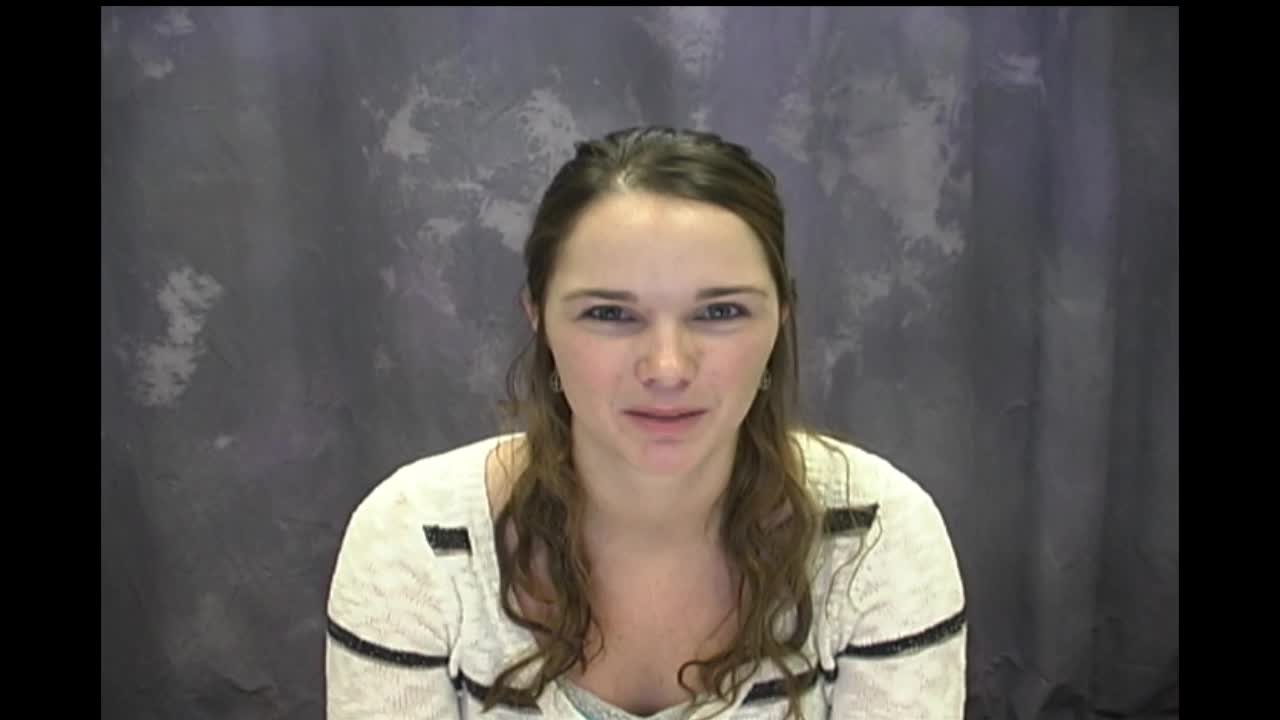
|
| |
-
ECE 1400 - Fundamentals of Engineering Computing Credits: (4)
Typically Taught Spring Semester: Full Sem
Description:
Computer programming and computational tools applied to electrical and computer engineering problems. Topics include coding fundamentals, numeric libraries and debugging techniques. Lecture and lab combination.
Pre-requisite(s): MATH 1210 .
|
| |
-
ECE 2210 - Electrical Engineering for Non-majors Credits: (4)
Typically Taught Fall Semester: Full Sem
Course Fee: $0.00
Description: Combined lecture/laboratory course as an introduction to electrical engineering for non-electrical engineers. Fundamentals of DC and AC circuits, digital circuits, and power circuits.
Pre-requisite(s): MATH 1210 .
 
|
| |
-
ECE 2260 - Fundamentals of Electrical Circuits Credits: (4)
Typically Taught Fall Semester: Full Sem
Typically Taught Spring Semester: Full Sem
Course Fee: $40.00
Course Fee Purpose: Lab related consumables and maintenance of laboratory equipment.
Description: Fundamental electric-circuit techniques including: time domain transient responses for 1st and 2nd order circuits, Laplace transforms, Fourier series, and filters.
Lecture and lab combination.
Pre-requisite(s): ECE 1270 and MATH 1220 .
Pre-requisite/Co-requisite: ECE 1400 and either MATH 2250 or MATH 2280 .
|
| |
-
ECE 2700 - Digital Circuits Credits: (4)
Typically Taught Fall Semester: Full Sem
Typically Taught Spring Semester: Full Sem
Course Fee: $25.00
Course Fee Purpose: Lab related consumables and maintenance of laboratory equipment.
Description: An introduction to digital electronics, integrated circuits, numbering systems, Boolean algebra, gates, flip-flops, multiplexers, sequential circuits, combinational circuits, and computer architecture. Introduction to hardware description language and programmable logic devices.
Lecture and lab combination. Laboratory activities to include the design, construction, analysis, and measurement of basic digital systems.
Pre-requisite/Co-requisite: ECE 1000 or ENGR 1000 .
|
| |
-
ECE 3000 - Engineering Seminar Credits: (1)
Typically Taught Fall Semester: Full Sem
Description: An engineering seminar course designed to prepare the student for professional engineering employment. Topics to include resumes, hiring criteria, interviewing techniques, engineering ethics, professional and societal responsibilities, lifelong learning, diversity, creative problem solving, goals, quality, timeliness, and continuous improvement. The students will research related topics and write a paper.
Pre-requisite(s): ECE 1270 .
Note: Admittance into the Professional Program required.
|
| |
-
ECE 3090 - Project Management Credits: (1)
Typically Taught Fall Semester: Full Sem
Typically Taught Spring Semester: Full Sem
Description: Project Management course is designed to prepare students for the senior capstone project. The course will include development of a contract, goal setting, time management, budgeting, project funding, project leadership and team building principles. Engineering economics, team work, quality statistics and continuous improvement will also be discussed. Other topics include project life cycles, organization and risk management. Students should take this course the semester before taking ECE 4010 .
Pre-requisite(s): Permission from the department.
Note: Admittance into the Professional Program required.
|
| |
-
ECE 3110 - Microelectronics I Credits: (4)
Typically Taught Fall Semester: Full Sem
Course Fee: $50.00
Course Fee Purpose: Lab related consumables and maintenance of laboratory equipment.
Description: Fundamental semiconductor device characteristics including diodes, MOSFETs and bipolar transistors; small and large signal characteristics and design of linear circuits.
Lecture and lab combination. Laboratory activities to include the design, construction, computer simulation, and analysis of semiconductor circuits, amplifiers and power supplies.
Pre-requisite(s): ECE 1270 and MATH 1220 .
Note: Admittance into the Professional Program required.
|
| |
-
ECE 3120 - Microelectronics II Credits: (4)
Typically Taught Spring Semester: Full Sem
Course Fee: $50.00
Course Fee Purpose: Lab related consumables and maintenance of laboratory equipment.
Description: Intermediate topics related to microelectronics including differential and multistage amplifiers, frequency response, feedback systems, power amplifiers, filters, and signal generation.
Lecture and lab combination. Laboratory activities to include the design, construction, computer simulation, and analysis of filters and advanced circuits.
Pre-requisite(s): ECE 2260 and ECE 3110 .
 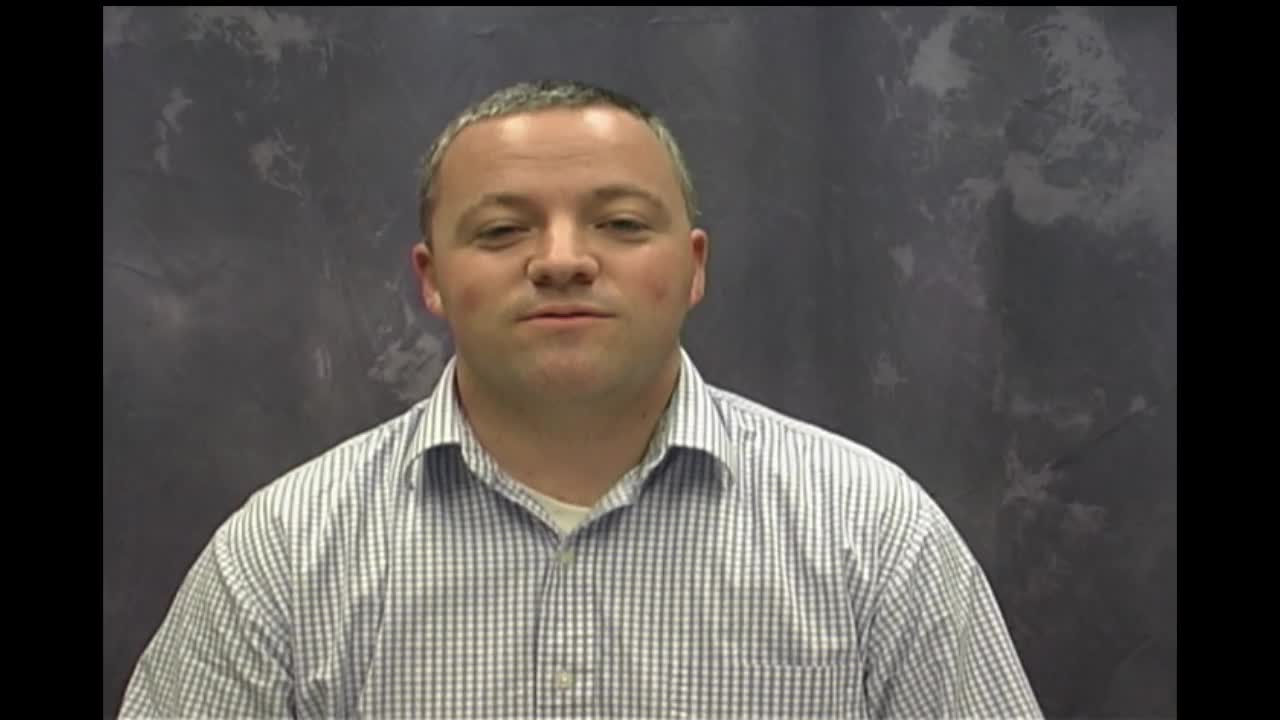
Note: Admittance into the Professional Program required.
|
| |
-
ECE 3210 - Signals and Systems Credits: (4)
Typically Taught Fall Semester: Full Sem
Course Fee: $40.00
Course Fee Purpose: Lab related consumables and maintenance of laboratory equipment.
Description: Topics related to the analysis of linear time invariant continuous and discrete systems and signal transformations, convolution, frequency spectra, Laplace transforms, Z transforms, and fast Fourier transforms.
Lecture and lab combination. Laboratory activities to include the computer simulation, analysis, and numerical modeling of signals and systems.
Pre-requisite(s): ECE 2260 and MATH 2250 or MATH 2270 and MATH 2280 .
 
Note: Admittance into the Professional Program required.
|
| |
-
ECE 3310 - Electromagnetics I Credits: (4)
Typically Taught Spring Semester: Full Sem
Course Fee: $30.00
Course Fee Purpose: Maintenance of laboratory equipment.
Description: An introduction to electrostatics, magnetostatics and Maxwell’s equations with specific applications to wave propagation and transmission line theory.
Lecture and lab combination. Laboratory activities to include the design, construction, and analysis of RF radar subsystems.
Pre-requisite(s): MATH 2210 , PHYS 2220 , and ECE 2260 .
 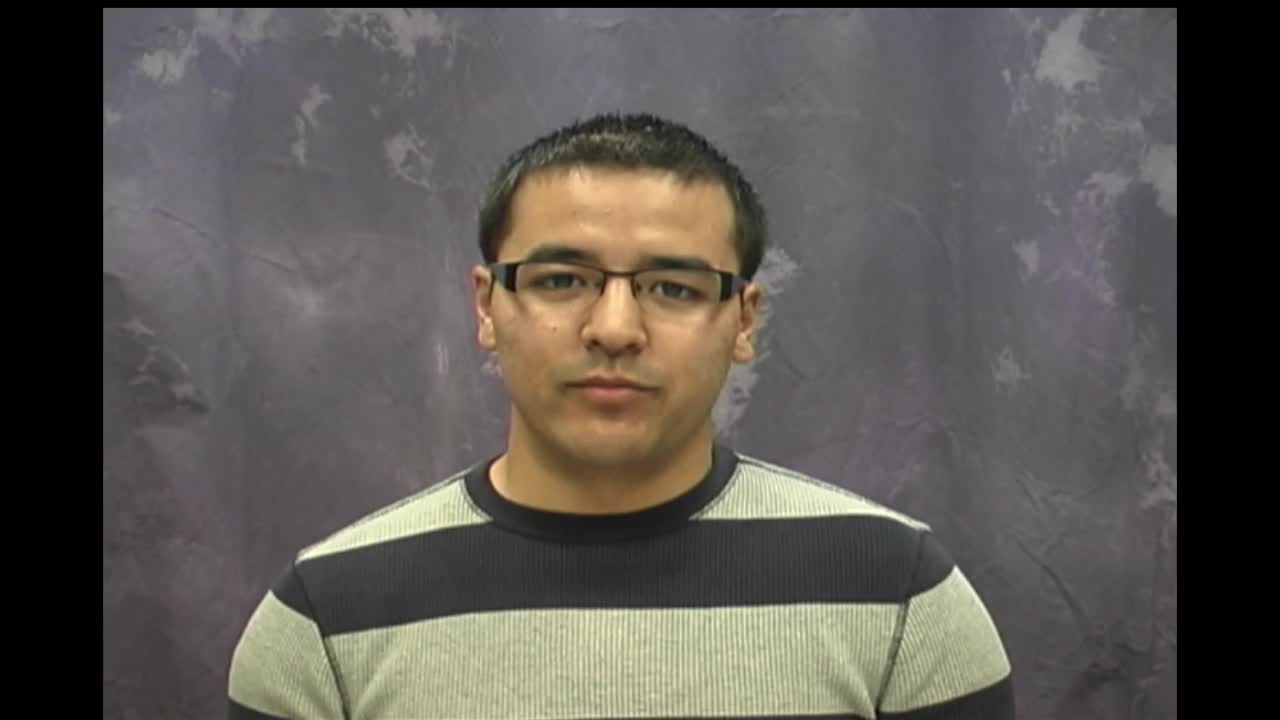
Note: Admittance into the Professional Program required.
|
| |
-
ECE 3430 - Engineering Probability and Statistics Credits: (3)
Typically Taught Spring Semester: Full Sem
Description: This course covers basic concepts and techniques of probability theory with applications to statistics, machine learning, and signal processing. Topics include probabilistic modeling and analysis, confidence intervals, and statistical inference. Example problems are drawn from engineering applications and include both analytic and computational solutions.
Pre-requisite(s): ECE 1400 and MATH 1220 .
|
| |
-
ECE 3510 - Power Systems Credits: (4)
Typically Taught Fall Semester: Full Sem
Course Fee: $50.00
Course Fee Purpose: Maintenance of laboratory equipment.
Description: A study of AC and DC power systems and machines, including single and 3-phase power, power factor and correction, transformers, synchronous and induction machines, DC motors, power transmission lines, and analysis of power flow and faults. Lecture and Lab combination.
Pre-requisite(s): ECE 2260 or ECE 2210 .
Note: Admittance into the Professional Program required.
|
| |
-
ECE 3610 - Digital Systems Credits: (4)
Typically Taught Fall Semester: Full Sem
Course Fee: $50.00
Course Fee Purpose: Lab related consumables and maintenance of laboratory equipment.
Description: Introduction to microprocessor architecture, arithmetic logic units, memory systems, input/output interfaces, peripheral devices, and communication.
Lecture and lab combination. Laboratory activities to include the programming and operation of microprocessor circuits.
Pre-requisite(s): ECE 2700 and (CS 2250 or CS 1410 or ECE 1400 ).
 
|
| |
-
ECE 3710 - Embedded Systems Credits: (4)
Typically Taught Spring Semester: Full Sem
Course Fee: $50.00
Course Fee Purpose: Lab related consumables and maintenance of laboratory equipment.
Description: Design and implementation of a microcontroller or microprocessor embedded system including assembly language programming, interfacing to peripherals, interrupt handling and debugging techniques.
Lecture and Lab. Laboratory exercises build toward a final embedded systems project.
Pre-requisite(s): (ECE 2700 or CS 2810 ) and (ECE 1400 or CS 2250 or CS 1410 ).
 
Pre-requisite/Co-requisite: ENGL 3100 or PS 3250 .
|
| |
-
ECE 3890 INT - Internship Credits: (1)
Typically Taught Summer Semester: Full Sem
Typically Taught Fall Semester: Full Sem
Typically Taught Spring Semester: Full Sem
Description: This is a core course that is required for the BS Engineering degree. The student will need department approval before being allowed to register.
Pre-requisite(s): Permission from the department.
 
ECE 3890 can be taken a maximum of three times for a total of three credits, but only one credit counts toward the major.
Note: Admittance into the Professional Program required.
|
| |
-
ECE 4010 CEL - Senior Project I Credits: (2)
Typically Taught Fall Semester: Full Sem
Typically Taught Spring Semester: Full Sem
Course Fee: $40.00
Course Fee Purpose: Maintenance of laboratory equipment.
Description: Students will be required to complete a 300-hour engineering project (over two semesters) in a team environment. Project management and problem solving techniques will be emphasized. Topics to include goal setting, developing milestone charts, writing contracts, conducting research, project design and construction, testing and analysis, project documentation, and design review presentations. Before seeking departmental approval, students should be currently enrolled in ECE 3090 and should have taken at least four 3000-level core ECE courses, MATH 3410 , and either ENGL 3100 or PS 3250 . Exceptions to this rule are made only if a student’s graduation would otherwise be delayed.
Pre-requisite(s): Permission from the department.
 
Note: Admittance into the Professional Program required.
|
| |
-
ECE 4020 CEL - Senior Project II Credits: (2)
Typically Taught Fall Semester: Full Sem
Typically Taught Spring Semester: Full Sem
Course Fee: $40.00
Course Fee Purpose: Maintenance of laboratory equipment.
Description: A continuation of Senior Project I. Students will be required to complete a significant engineering project in a team environment. Project management and problem solving techniques will be emphasized. Topics to include goal setting, developing milestone charts, writing contracts, conducting research, project design and construction, testing and analysis, project documentation, and design review presentations.
Pre-requisite(s): ECE 4010 .
 
Note: Admittance into the Professional Program required.
|
| |
-
ECE 4100 - Control Systems Credits: (4)
Typically Taught Fall Semester: Full Sem
Course Fee: $50.00
Course Fee Purpose: Lab related consumables and maintenance of laboratory equipment.
Description: Topics related to control theory, analysis, and testing of systems in the time domain, frequency domain and state space.
Lecture and lab combination.
Pre-requisite(s): ECE 3110 and ECE 3210 .
 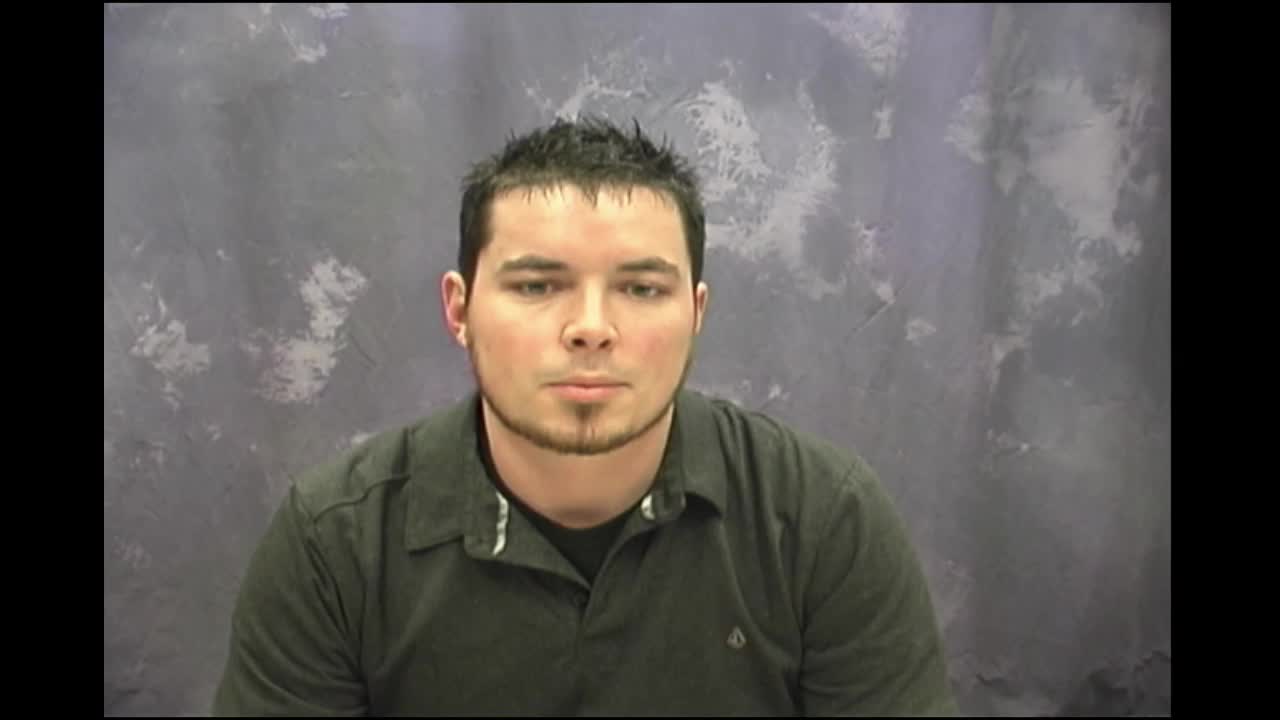
Note: Admittance into the Professional Program required.
|
| |
-
ECE 5110 - Digital VLSI Design Credits: (3)
Typically Taught Fall Semester: Full Sem
Course Fee: $100.00
Course Fee Purpose: Software licensing and maintenance of laboratory equipment.
Description: Introduction to Digital VLSI design. Includes the development of standard cell library of common CMOS circuits. Use of hardware description language and CAD tools for the design and simulation of custom large-scale digital systems. Students will understand the impacts and tradeoffs from speed, power consumption, and thermal properties of large-scale custom ICs.
Pre-requisite(s): ECE 3110 and ECE 3610 .
Note: Admittance into the Professional Program required.
|
| |
-
ECE 5120 - Analog VLSI Design Credits: (3)
Typically Taught Spring Semester: Full Sem
Course Fee: $100.00
Course Fee Purpose: Software licensing and maintenance of laboratory equipment.
Description: Design of analog VLSI systems. Course includes design, modeling, and verification of analog circuits in large-scale systems. Students will develop custom analog system designs utilizing CAD programs.
Pre-requisite(s): ECE 3120 .
Note: Admittance into the Professional Program required.
|
| |
-
ECE 5130 - Advanced Semiconductor Devices Credits: (3)
Typically Taught Spring Semester: Full Sem
Course Fee: $30.00
Course Fee Purpose: Maintenance of laboratory equipment.
Description: Introduction to advanced semiconductor physics and devices. Topics include carrier transport theory, energy band diagrams, PN junctions, metal-semiconductor junctions, BJTs and MOSFETs. Study of current semiconductor process technologies and discussion of off-roadmap technologies.
Pre-requisite(s): PHYS 2220 and ECE 3110 .
Note: Admittance into the Professional Program required.
|
| |
-
ECE 5140 - Sensors and Instrumentation Credits: (3)
Typically Taught Spring Semester: Full Sem
Course Fee: $50.00
Course Fee Purpose: Lab related consumables and maintenance of laboratory equipment.
Description: This course introduces a host of sensor technologies from both theoretical and practical perspectives. A study of the electronics for sensor signal conditioning will be complemented by lectures on the principles and operation of various sensor modalities including pressure, thermal, strain, displacement, inertial, magnetic field, optical, coustic, and/or bio-medical. Students will be introduced to precision analog circuit architectures, noise analysis, and signal processing algorithms commonly used in data acquisition systems.
Pre-requisite(s): ECE 3110 and PHYS 2220 .
|
| |
-
ECE 5210 - Digital Signal Processing Credits: (3)
Typically Taught Fall Semester: Full Sem
Typically Taught Spring Semester: Full Sem
Course Fee: $30.00
Course Fee Purpose: Maintenance of laboratory equipment.
Description: Theory, application, and implementation of digital signal processing (DSP) concepts, from the design and implementation perspective. Topics include: Fast Fourier transforms, adaptive filters, state-space algorithms, random signals, and spectral estimation.
Pre-requisite(s): ECE 3210 .
 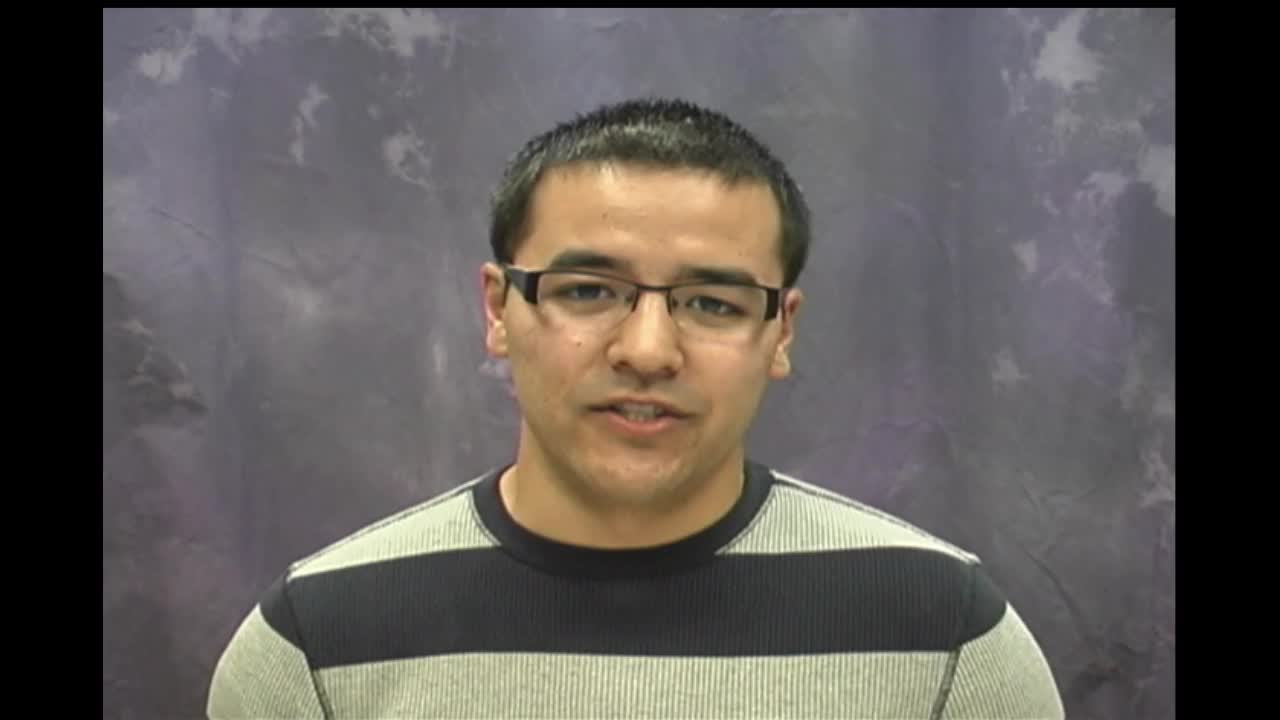
Note: Admittance into the Professional Program required.
|
| |
-
ECE 5220 - Image Processing Credits: (3)
Typically Taught Spring Semester: Full Sem
Course Fee: $30.00
Course Fee Purpose: Maintenance of laboratory equipment.
Description: Advanced image processing theory and methods. Topics include digital image formation, transformation, filtering, enhancements, segmentation and morphological processing. Lectures, computer assignments and project (including term paper).
Pre-requisite(s): ECE 3210 .
Note: Admittance into the Professional Program required.
|
| |
-
ECE 5230 - Engineering Applications in Deep Learning Credits: (3)
Typically Taught Spring Semester: Full Sem
Description: This course covers deep learning architectures with a focus on learning end-to-end models for these tasks, particularly image and signal processing. Students will learn to implement, train and debug their own deep neural networks and gain a detailed understanding of cutting-edge research in this field. Strong emphasis will be placed on real-world applications for both solving engineering problems using these methods as well as practical techniques for training and fine-tuning the networks. Case studies will be drawn from medical imaging, semiconductors, and audio signal processing.
Pre-requisite(s): ECE 1400 , ECE 3210 , MATH 3410 , and either MATH 2250 or MATH 2270 .
|
| |
-
ECE 5310 - Electromagnetics II Credits: (3)
Typically Taught Fall Semester: Full Sem
Typically Taught Spring Semester: Full Sem
Course Fee: $30.00
Course Fee Purpose: Maintenance of laboratory equipment.
Description: A study of intermediate electromagnetic issues common to circuits, systems, and communication networks.
Pre-requisite(s): ECE 3310 .
Note: Admittance into the Professional Program required.
|
| |
-
ECE 5320 - Antennas and Wave Propagation Credits: (3)
Typically Taught Fall Semester: Full Sem
Course Fee: $40.00
Course Fee Purpose: Lab related consumables and maintenance of laboratory equipment.
Description: Behavior of radiated electromagnetic waves in atmosphere, space, urban and indoor environments; path, frequency and antenna selection for practical communication systems; propagation prediction.
Pre-requisite(s): ECE 3310 .
Note: Admittance into the Professional Program required.
|
| |
-
ECE 5410 - Communication Circuits and Systems Credits: (3)
Typically Taught Spring Semester: Full Sem
Course Fee: $30.00
Course Fee Purpose: Maintenance of laboratory equipment.
Description: A study of communication circuits, modulation and decoding theory, spectrum usage, networks, and protocols.
Pre-requisite(s): ECE 3210 and MATH 3410 .
 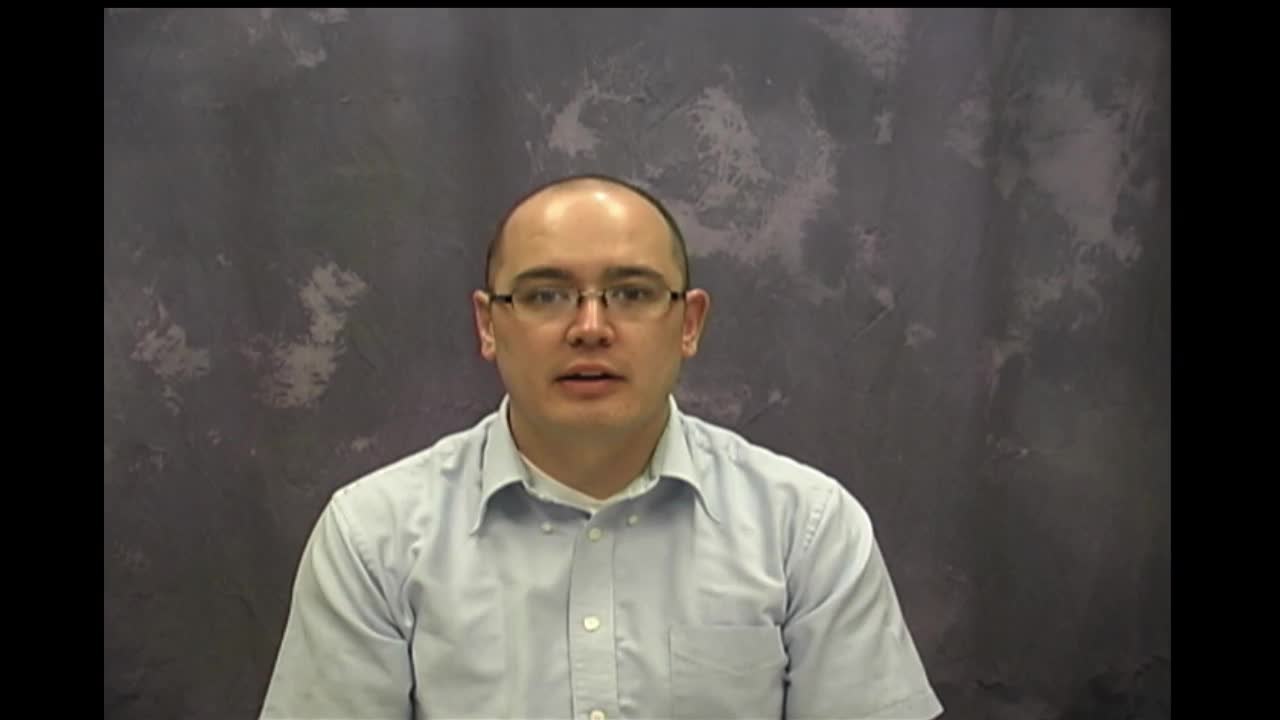
Note: Admittance into the Professional Program required.
|
| |
-
ECE 5420 - Digital Communication Credits: (3)
Typically Taught Fall Semester: Full Sem
Course Fee: $30.00
Course Fee Purpose: Maintenance of laboratory equipment.
Description: This course provides an in-depth coverage of the theory, analysis, and design of digital communications systems with an emphasis on advanced topics related to wired, wireless data communication and the physical networking layer. Topics include QPSK, QAM, PAM, CSMA/CD, SONET, ADSL, and/or MACAW. Spread spectrum concepts such as FHSS, DSSS, OFDM, MIMO and/or cooperative communication techniques may be included. Students will develop Matlab based models to emulate the concepts. The course will include group projects as well as individual assignments. The course would be beneficial particularly to students who are interested in doing work/research in fields related to communications, networks, and signal processing.
Pre-requisite(s): ECE 3210 and MATH 3410 .
Note: Admittance into the Professional Program required.
|
| |
-
ECE 5440 - Optical Communication Systems Credits: (3)
Description: This course covers the fundamentals of optical communication. Topics include wave propagation in fiber optics, optical transmitters and receivers, system design and performance, multichannel lightwave systems, optical losses and loss management, fiber dispersion and dispersion management.
Pre-requisite(s): ECE 3310 .
|
| |
-
ECE 5510 - Advanced Power Systems Credits: (3)
Typically Taught Spring Semester: Full Sem
Course Fee: $50.00
Course Fee Purpose: Lab related consumables and maintenance of laboratory equipment.
Description: This course will explore advanced power systems concepts.
Pre-requisite(s): ECE 3510 .
Note: Admittance into the Professional Program required.
|
| |
-
ECE 5620 - Digital System Testing Credits: (3)
Typically Taught Spring Semester: Full Sem
Course Fee: $50.00
Course Fee Purpose: Lab related consumables and maintenance of laboratory equipment.
Description: Fundamentals of testing digital circuits and memory devices, including fault modeling, test pattern generation, and test coverage. Introduction to design for test and built-in self-test. Laboratory activities include performing bench and automated testing of digital and memory chips, and generating test patterns for fault detection.
Pre-requisite(s): ECE 3610 .
Note: Admittance into the Professional Program required.
|
| |
-
ECE 5640 - Model-based Systems Engineering Credits: (3)
Typically Taught Spring Semester: Full Sem
Description: This course is an introduction to the use of formal models to describe complex electrical systems. Topics include modeling tools, design, verification and testing of model-based systems, model validation and verification, and the use of state-machines in models.
Pre-requisite(s): ECE 3610 .
|
| |
-
ECE 5710 - Real-Time Systems Credits: (4)
Typically Taught Fall Semester: Full Sem
Course Fee: $50.00
Course Fee Purpose: Maintenance of laboratory equipment.
Description: An advanced course on real-time system design. Topics include task concurrency, scheduling paradigms, synchronization, resource access control, and inter-process communication. Lecture and Lab combination.
Pre-requisite(s): ECE 3710 .
Note: Admittance into the Professional Program required.
|
| |
-
ECE 5730 - Robotics Credits: (3)
Typically Taught Fall Semester: Full Sem
Typically Taught Spring Semester: Full Sem
Course Fee Purpose: Lab related consumables and maintenance of laboratory equipment.
Description: Robotic design and control principles. Topics include servo control, localization, navigation and vision. Introduction to robotic operating system software to interface and fuse data from various sensors such as LIDAR, Inertial measurement units, compass and physical and visual odometry for navigation and control. Validation of designs before implementation.
Pre-requisite(s): ECE 4100 .
|
| |
-
ECE 5750 - Quantum Computer Engineering Credits: (3)
Typically Taught Spring Semester: Full Sem
Description: Overview of quantum computer engineering. How quantum computers are fundamentally different from classical computers. Key applications of quantum computers. Topics include qubits, entanglement, EPR paradox, Bell’s theorem, Bloch sphere, single-qubit gates, multi-qubit gates, Shor’s algorithm, Simon’s algorithm. Also covers physical realizations of a quantum computer: photons, polarization, and decoherence.
Pre-requisite(s): ECE 2700 , MATH 2250 or (MATH 2270 and MATH 2280 ), PHYS 2220 , and MATH 3410 .
|
| |
-
ECE 5800 - Individual Studies Credits: (1-4)
Description: The students will receive credit for approved studies in the Electrical & Computer Engineering programs. A maximum of four credits can count as an elective course in the Electrical & Computer Engineering programs.
 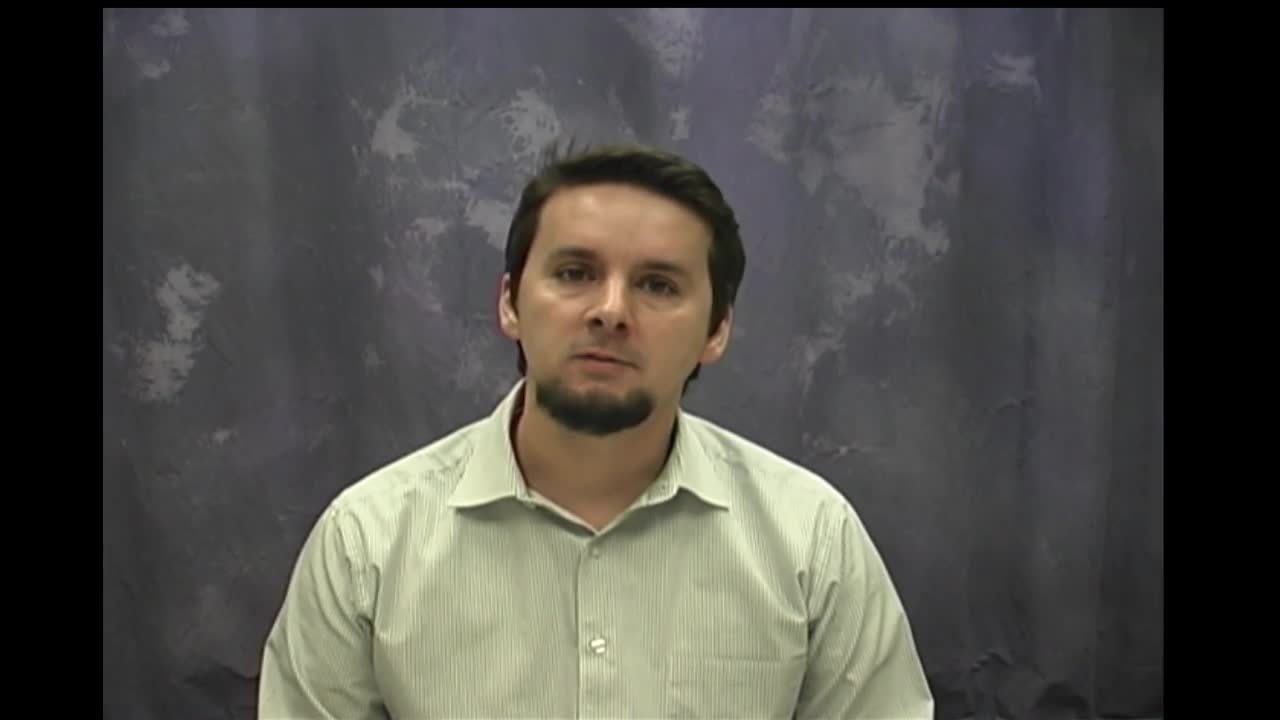
May be repeated four times for a maximum of four credit hours.
Note: Admittance into the Professional Program required.
|
| |
-
ECE 5900 - Special Topics Credits: (1-4)
Variable Title
Description: A one-time special study course designed to introduce a new relevant topic that is not covered in the Electrical & Computer Engineering programs.
Lecture and lab combination. Laboratory activities support the selected course topic.
May be repeated four times for a maximum of four credit hours.
Note: A maximum of four credits can be counted for the Electrical & Computer Engineering programs. Admittance into the Professional Program required.
|
| |
-
ECE 6010 - Design Project Credits: (2-6)
Course Fee: $40.00
Course Fee Purpose: Maintenance of laboratory equipment.
Description: Students are required to complete a substantial engineering design project. Students must demonstrate proficiency in research, design, analysis, project planning, implementation, testing, presentation and documentation. Students receive T (temporary) grades until their final design review, after which these grades are changed retroactively. Students must be enrolled in ECE 6010 at the time of their final design review. This course may be repeated.
Pre-requisite(s): Permission from the department.
May be repeated 11 times for a maximum of 20 credit hours.
|
| |
-
ECE 6020 - Thesis Credits: (2-6)
Typically Taught Fall Semester: Full Sem
Typically Taught Spring Semester: Full Sem
Description: Students are required to perform original research that results in a thesis under the direction of a faculty advisor. Students receive T (temporary) grades until their thesis defense, after which these grades are changed retroactively. Students must be enrolled in ECE 6020 at the time of their thesis defense.
Pre-requisite(s): Permission from the department.
This course may be taken 3 times and up to 9 credits.
|
| |
-
ECE 6110 - Digital VLSI Design Credits: (3)
Course Fee: $100.00
Course Fee Purpose: Software licensing and maintenance of laboratory equipment.
Description: Introduction to Digital VLSI design. Includes the development of standard cell library of common CMOS circuits. Use of hardware description language and CAD tools for the design and simulation of custom large-scale digital systems. Students will understand the impacts and tradeoffs from speed, power consumption, and thermal properties of large-scale custom ICs.
Pre-requisite(s): ECE 3110 and ECE 3610 .
|
| |
-
ECE 6120 - Analog VLSI Design Credits: (3)
Course Fee: $100.00
Course Fee Purpose: Software licensing and maintenance of laboratory equipment.
Description: Design of analog VLSI systems. Course includes design, modeling, and verification of analog circuits in large-scale systems. Students will develop custom analog system designs utilizing CAD programs.
Pre-requisite(s): ECE 3120 .
|
| |
-
ECE 6130 - Advanced Semiconductor Devices Credits: (3)
Course Fee: $30.00
Course Fee Purpose: Maintenance of laboratory equipment.
Description: Introduction to advanced semiconductor physics and devices. Topics include carrier transport theory, energy band diagrams, PN junctions, metal-semiconductor junctions, BJTs and MOSFETs. Study of current semiconductor process technologies and discussion of off-roadmap technologies.
Pre-requisite(s): PHYS 2220 and ECE 3110 .
|
| |
-
ECE 6140 - Sensors and Instrumentation Credits: (3)
Typically Taught Spring Semester: Full Sem
Course Fee: $50.00
Course Fee Purpose: Lab related consumables and maintenance of laboratory equipment.
Description: This course introduces a host of sensor technologies from both theoretical and practical perspectives. A study of the electronics for sensor signal conditioning will be complemented by lectures on the principles and operation of various sensor modalities including pressure, thermal, strain, displacement, inertial, magnetic field, optical, coustic, and/or bio-medical. Students will be introduced to precision analog circuit architectures, noise analysis, and signal processing algorithms commonly used in data acquisition systems.
Pre-requisite(s): ECE 3110 .
|
| |
-
ECE 6210 - Digital Signal Processing Credits: (3)
Course Fee: $30.00
Course Fee Purpose: Maintenance of laboratory equipment.
Description: Theory, application, and implementation of digital signal processing (DSP) concepts, from the design and implementation perspective. Topics include: Fast Fourier transforms, adaptive filters, state-space algorithms, random signals, and spectral estimation.
Pre-requisite(s): ECE 3210 .
|
| |
-
ECE 6220 - Image Processing Credits: (3)
Course Fee: $30.00
Course Fee Purpose: Maintenance of laboratory equipment.
Description: Advanced image processing theory and methods. Topics include digital image formation, transformation, filtering, enhancements, segmentation and morphological processing. Lectures, computer assignments and project (including term paper).
Pre-requisite(s): ECE 3210 .
|
| |
-
ECE 6230 - Engineering Applications in Deep Learning Credits: (3)
Typically Taught Spring Semester: Full Sem
Description: This course covers deep learning architectures with a focus on learning end-to-end models for these tasks, particularly image and signal processing. Students will learn to implement, train and debug their own deep neural networks and gain a detailed understanding of cutting-edge research in this field. Strong emphasis will be placed on real-world applications for both solving engineering problems using these methods as well as practical techniques for training and fine-tuning the networks. Case studies will be drawn from medical imaging, semiconductors, and audio signal processing.
Pre-requisite(s): ECE 1400 , ECE 3210 , MATH 3410 , and either MATH 2250 or MATH 2270 .
|
| |
-
ECE 6310 - Electromagnetics II Credits: (3)
Typically Taught Fall Semester: Full Sem
Course Fee: $30.00
Course Fee Purpose: Maintenance of laboratory equipment.
Description: A study of intermediate electromagnetic issues common to circuits, systems, and communication networks.
Pre-requisite(s): ECE 3310 .
|
| |
-
ECE 6320 - Antennas and Wave Propagation Credits: (3)
Typically Taught Fall Semester: Full Sem
Course Fee: $40.00
Course Fee Purpose: Lab related consumables and maintenance of laboratory equipment.
Description: Behavior of radiated electromagnetic waves in atmosphere, space, urban and indoor environments; path, frequency and antenna selection for practical communication systems; propagation prediction.
Pre-requisite(s): ECE 3310 .
|
| |
-
ECE 6410 - Communication Circuits and Systems Credits: (3)
Course Fee: $30.00
Course Fee Purpose: Maintenance of laboratory equipment.
Description: A study of communication circuits, modulation and decoding theory, spectrum usage, networks, and protocols.
Pre-requisite(s): ECE 3210 and MATH 3410 .
|
| |
-
ECE 6420 - Digital Communication Credits: (3)
Course Fee: $30.00
Course Fee Purpose: Maintenance of laboratory equipment.
Description: This course provides in-depth coverage of the theory, analysis, and design of digital communications systems with an emphasis on advanced topics related to wired and wireless data communication. Students will develop computer models to emulate the concepts. The course is particularly beneficial to students interested in doing work/research in fields related to communications and networking.
Pre-requisite(s): ECE 3210 and MATH 3410 .
|
| |
-
ECE 6440 - Optical Communication Systems Credits: (3)
Description: This course covers the fundamentals of optical communication. Topics include wave propagation in fiber optics, optical transmitters and receivers, system design and performance, multichannel lightwave systems, optical losses and loss management, fiber dispersion and dispersion management.
Pre-requisite(s): ECE 3310 .
|
| |
-
ECE 6510 - Advanced Power Systems Credits: (3)
Typically Taught Spring Semester: Full Sem
Course Fee: $50.00
Course Fee Purpose: Lab related consumables and maintenance of laboratory equipment.
Description: This course will explore advanced power systems concepts.
Pre-requisite(s): ECE 3510 .
|
| |
-
ECE 6620 - Digital System Testing Credits: (3)
Typically Taught Spring Semester: Full Sem
Course Fee: $50.00
Course Fee Purpose: Lab related consumables and maintenance of laboratory equipment.
Description: Fundamentals of testing digital circuits and memory devices, including fault modeling, test pattern generation, and test coverage. Introduction to design for test and built-in self-test. Laboratory activities include performing bench and automated testing of digital and memory chips, and generating test patterns for fault detection.
Pre-requisite(s): ECE 3610 .
|
| |
-
ECE 6640 - Model-Based Systems Engineering Credits: (3)
Typically Taught Spring Semester: Full Sem
Description: This course is an introduction to the use of formal models to describe complex electrical systems. Topics include modeling tools, design, verification and testing of model-based systems, model validation and verification, and the use of state-machines in models.
Pre-requisite(s): ECE 3610 .
|
| |
-
ECE 6710 - Real-Time Systems Credits: (4)
Typically Taught Fall Semester: Full Sem
Course Fee: $50.00
Course Fee Purpose: Maintenance of laboratory equipment.
Description: An advanced course on real-time system design. Topics include task concurrency, scheduling paradigms, synchronization, resource access control, and inter-process communication. Lecture and Lab combination.
Pre-requisite(s): ECE 3710 or CS 3100 .
|
| |
-
ECE 6730 - Robotics Credits: (3)
Typically Taught Fall Semester: Full Sem
Course Fee Purpose: Lab related consumables and maintenance of laboratory equipment.
Description: Robotic design and control principles. Topics include servo control, localization, navigation and vision. Introduction to robotic operating system software to interface and fuse data from various sensors such as LIDAR, Inertial measurement units, compass and physical and visual odometry for navigation and control. Validation of designs before implementation.
Pre-requisite(s): ECE 4100 .
|
| |
-
ECE 6750 - Quantum Computer Engineering Credits: (3)
Typically Taught Spring Semester: Full Sem
Description: Overview of quantum computer engineering. How quantum computers are fundamentally different from classical computers. Key applications of quantum computers. Topics include qubits, entanglement, EPR paradox, Bell’s theorem, Bloch sphere, single-qubit gates, multi-qubit gates, Shor’s algorithm, Simon’s algorithm. Also covers physical realizations of a quantum computer: photons, polarization, and decoherence.
Pre-requisite(s): ECE 3610 , MATH 2250 or (MATH 2270 and MATH 2280 ), PHYS 2220 , and MATH 3410 .
|
| |
|
| |
-
ECE 6900 - Special Topics Credits: (1-4)
Variable Title
Typically Taught Fall Semester: Full Sem
Typically Taught Spring Semester: Full Sem
Description: A one-time special study course designed to introduce a new relevant topic that is not covered in the Electrical & Computer Engineering programs. Lecture or lecture and lab combination. Laboratory activities support the selected course topic.
May be repeated 10 times and up to 12 credit hours.
|
| |
-
ECED 2110 - Self-Compassion & Vitality for Sustaining Work with Children Credits: (2)
Typically Taught Fall Semester: Full Sem
Description: This course examines ways to cultivate and sustain capacity for responding to the strengths and needs of all children, particularly those experiencing diverse circumstances and trauma, while attending to the physical, emotional, and mental stress professionals may be experiencing.
|
| |
-
ECED 2500 - Development of the Child Credits: (3)
Typically Taught Summer Semester: 1st Blk Online
Typically Taught Fall Semester: Full Sem
Typically Taught Spring Semester: Full Sem
Description: This course examines contemporary theory and research of growth and development from conception through childhood, studied in the context of family, gender, culture, language, disability, socioeconomics, diversity, and society.
Pre-requisite/Co-requisite: CHF 1500 .
|
| |
-
ECED 2600 - Introduction to Early Childhood Education & Care Credits: (3)
Typically Taught Summer Semester: Full Sem - Online
Typically Taught Fall Semester: Full Sem, Full Sem - Online
Typically Taught Spring Semester: Full Sem - Online
Course Fee: $50.00
Course Fee Purpose: This course fee will be used to provide coaching support for field experiences associated with this course.
Description: This course examines the historical philosophical, ethical and cultural roots of early childhood education of contemporary perspectives on childhood and the meaning of human difference. Students will explore ways to live out inclusive commitments and aspirations to create communities where all children and families experience a sense of belonging.
3 hours lecture per week and 12 hours field observation.
Pre-requisite(s): CHF 1500 or instructor consent.
Pre-requisite/Co-requisite: ECED 2500 .
|
| |
-
ECED 2610 - Child Guidance Credits: (3)
Typically Taught Fall Semester: Full Sem, Full Sem - Online
Typically Taught Spring Semester: Full Sem, Full Sem - Online
Course Fee: $50.00
Course Fee Purpose: This course fee will be used to provide coaching support for field experiences associated with this course.
Description: This course focuses on the understanding and use of developmentally, culturally, and linguistically appropriate guidance practices to make evidence-based, data-informed decisions that support each child. Students complete a minimum of 24 hours of field experience observing and practicing in an early learning setting serving diverse populations of children 0-8 years.
Pre-requisite(s): CHF 1500 .
|
| |
-
ECED 2620 - Planning Creative Experiences for Young Children Credits: (3)
Typically Taught Fall Semester: Full Sem, Full Sem - Online
Typically Taught Spring Semester: Full Sem, Full Sem - Online
Course Fee: $50.00
Course Fee Purpose: This course fee will be used to provide coaching support for field experiences associated with this course.
Description: Development of attitudes, materials, and skills needed to plan and teach age, individually, and culturally appropriate curriculum for young children. Students complete a minimum of 24 hours practicum arranged by the instructor.
Pre-requisite(s): CHF 1500 , ECED 2500 , and ECED 2610 .
Co-Requisite(s): ECED 2600 .
|
| |
-
ECED 2640 - Collaborating with Families of Young Children. Credits: (3)
Typically Taught Fall Semester: Full Sem
Typically Taught Spring Semester: Full Sem
Description: This course explores culturally sustaining philosophies, processes, and methods of relational ethical practice for collaborating with diverse families of young children.
Pre-requisite(s): CHF 1500 .
|
| |
-
ECED 2670 - STEM in Early Childhood Credits: (3)
Typically Taught Fall Semester: Full Sem
Course Fee: $50.00
Course Fee Purpose: This course fee will be used to provide coaching support for field experiences associated with this course.
Description: The purpose of this course is to build on a foundation of knowledge of developmentally appropriate practice for teaching integrated content in the disciplines of science, technology, engineering, and math (STEM) in early childhood settings. Fundamental approaches to learning will be employed to integrate learning across these disciplines. Students will develop meaningful curriculum content through hands-on learning experiences designed for children (birth through age 8) based on accepted learning standards in each content area.
Pre-requisite(s): ECED 2600 , ECED 2610 , ECED 2620 .
|
| |
-
ECED 2810 - Experimental Course Credits: (1-6)
Experimental
Description: Consult the semester class schedule for the current offering under this number. The specific title and credit authorized will appear on the student transcript.
May be repeated for a total maximum of 6 credit hours.
|
| |
-
ECED 2830 - Directed Readings Credits: (1-3)
Typically Taught Summer Semester: Full Sem
Typically Taught Fall Semester: Full Sem
Typically Taught Spring Semester: Full Sem
Description: Individually chosen readings on specialized topics supervised by a faculty member.
Pre-requisite(s): Consent of faculty supervisor prior to registration.
May be repeated up to 3 credit hours.
|
| |
-
ECED 2850 - Child Development Associate Training Credits: (2)
Description: Understanding child development concepts and applying them to teaching situations with young children. The Professional Resource File in preparation for National Child Development Associate Credential (CDA) is compiled during the course.
Note: This course is not currently offered.
|
| |
-
ECED 2860 INT - Practicum Credits: (1-6)
Typically Taught Fall Semester: Full Sem
Typically Taught Spring Semester: Full Sem
Course Fee: $50.00
Course Fee Purpose: This course fee will be used to provide coaching support for field experiences associated with this course.
Description: Students apply knowledge, skills, and competencies needed to plan and teach a culturally appropriate curriculum for young children. A practicum for 3 credits requires students complete a minimum of 135 field experience hours (45 hours/credit) supervised in an early childhood setting that must be approved by the instructor.
Pre-requisite(s): For Early Childhood majors: CHF 1500 , ECED 2500 , ECED 2600 , ECED 2610 , ECED 2620 , or consent of faculty advisor prior to registration.
May be repeated up to 6 credit hours.
|
| |
-
ECED 2890 INT - Internship in Early Childhood Credits: (1-6)
Typically Taught Fall Semester: Full Sem
Typically Taught Spring Semester: Full Sem
Course Fee: $50.00
Course Fee Purpose: This course fee will be used to provide coaching support for field experiences associated with this course.
Description: Provides academic credit for on-the-job learning experience as a bridge to becoming a professional in the early childhood field. Ethical conduct related to working with children and families will be studied. Professional activities will include goal setting, strategies, and documentation for progress are including in a final Professional Development Integrated Statement. Students arrange their own field placement in a professional setting with the help of the instructor. 120 field experience hours are required for 3 credits (40 hours/credit). Prior consent of the faculty instructor is required. A background check will be required for work in most early childhood settings. 3-credits are required for Early Childhood AAS majors.
Pre-requisite(s): ECED 2860 or consent of faculty advisor.
|
| |
-
ECED 2910 - Children & Families: Variable Titles Credits: (1-3)
Variable Title
Typically Taught Fall Semester: Full Sem, Full Sem - Online
Typically Taught Spring Semester: Full Sem, Full Sem - Online
Description: An examination of the conceptual knowledge, research, theory and applied skills on specific topics for early childhood and family life educators such as, becoming a teacher leader, observation and assessment, children’s health and well-being, infant mental health, or trauma informed care and teaching.
Suggested Requisite(s): ECED 2500, ECED 2600, ECED 2610, ECED 2620.
|
| |
-
ECED 2920 - Short Courses, Workshops, Institutes, and Special Programs Credits: (1-6)
Workshop
Description: Consult the class schedule for the current offering under this number. The specific title and credit authorized will appear on the student transcript.
May be repeated for a total maximum of 6 credit hours.
Note: This course is taught as needed.
|
| |
-
ECED 2990A - Seminar in Early Childhood Education Credits: (1)
Typically Taught Fall Semester: Full Sem
Typically Taught Spring Semester: Full Sem
Description: This one credit course is designed as a capstone opportunity for students completing the AAS in Early Childhood culminating in a synthesis of prior learning to articulate what it means to be an early childhood educator based on the Early Childhood Education professional standards and competencies.
Pre-requisite(s): CHF 1500 , ECED 2500 , ECED 2600 , ECED 2610 , and ECED 2620 .
Pre-requisite/Co-requisite: ECED 2860 .
|
| |
-
ECED 3145 - Educational Psychology, Child Development, and Classroom Management Credits: (3)
Typically Taught Fall Semester: Full Sem
Typically Taught Spring Semester: Full Sem
Description: This course examines historical and contemporary perspectives in educational psychology, child development and guidance, and classroom management for kindergarten through 8th grade, with a focus on translating theory to practice within diverse communities of learners. It is part of Elementary Education Level I and includes an integrated field experience.
|
| |
-
ECED 3500 - Young Children: Adversity and Resilience Credits: (3)
Typically Taught Fall Semester: Full Sem
Typically Taught Spring Semester: Full Sem
Description: This course examines varying perspectives on the contexts and systems that effect the potential advantages or adversities experienced by young children in a diverse society. Students develop an awareness of opportunities and resources for children and families that support well-being and nurture resilience. Students explore current topics of interest to find their passion and voice to advocate for children and families.
|
| |
-
ECED 3570 - Infants and Toddlers: Development and Practice Credits: (3)
Typically Taught Fall Semester: Full Sem
Typically Taught Spring Semester: Full Sem
Description: This course provides an in-depth study of physical, cognitive, language, social, and emotional development from prenatal period through toddlerhood. Practical application and assessment play an integral part of the course. Students will be introduced to observation, early intervention, and relationship-based care in diverse settings. Students complete a minimum of 24 hours practicum arranged by the instructor.
Pre-requisite(s): CHF 1500 .
|
| |
-
ECED 3620 - Curriculum Planning for Kindergarten Credits: (3)
Typically Taught Fall Semester: Full Sem
Typically Taught Spring Semester: Full Sem
Description: An introduction to planning curriculum in kindergarten with an emphasis on design of learning environments and curriculum that are developmentally appropriate and evidence based. Students complete a minimum of 24 hours practicum. Student are required to complete a background check by the beginning of the semester.
Pre-requisite(s): CHF 1500 ; ECED 2500 ; ECED 2610 .
|
| |
-
ECED 3640 - Collaborating with Families of Young Children Credits: (3)
Typically Taught Fall Semester: Full Sem
Description: This course explores culturally sustaining philosophies, processes, and methods of relational ethical practice for collaborating with diverse families of young children.
Pre-requisite(s): CHF 1500 .
Suggested Requisite(s): Pre-requisite: ECED 2610 and ECED 3500 . Co-requisite: ECED 4710 and ECED 4720 .
|
| |
-
ECED 3680 - Teaching Experience in the Preschool Credits: (3)
Description: Provides students an opportunity to be an assistant teacher, to observe and interact with children on an individual and group basis; plan, develop, and implement activities for children.
Pre-requisite(s): CHF 1500 , ECED 2610 and ECED 2620 , or consent of instructor.
Note: This course is not currently offered.
|
| |
-
ECED 4110 - Self-Compassion & Vitality for Sustaining Work with Children Credits: (2)
Typically Taught Fall Semester: Full Sem
Description: This course examines ways to cultivate and sustain capacity for responding to the strengths and needs of all children, particularly those experiencing diverse circumstances and trauma, while attending to the physical, emotional, and mental stress professionals may be experiencing.
|
| |
-
ECED 4130 - Language Development and Emergent Literacy in Early Childhood Credits: (3)
Typically Taught Fall Semester: Full Sem
Typically Taught Spring Semester: Full Sem
Description: This course explores current theory, research, and evidence based practices for promoting early language and emergent literacy development (birth 8 years) in home, child care, prekindergarten, and primary education environments through collaborative practices between early childhood professionals and parents.
Pre-requisite(s): CHF 1500 .
|
| |
-
ECED 4201 - Coaching EC/ECE Professionals: Foundation & Organization of Coaching Application: Organization & Self Reflection Credits: (3)
Typically Taught Spring Semester: Full Sem odd years
Description: Educator coaching is an evidence-based strategy to increase program quality and teacher effectiveness in early childhood/early childhood education classrooms, programs, and home delivery systems. This course will train EC/ECE coaches using material from research-based sources and program experiences. Participants will learn recommended practices in coaching related to early childhood and develop a systematic, individualized approach to effective coaching. Participants will learn practical strategies for coaching early childhood staff of diverse backgrounds and varying adult learning styles. Materials and discussions will include interpersonal communication skills and a systematic approach to more intentional coaching. Students will apply these strategies to Case Studies and field work experiences throughout the course and will participate in hands-on activities in class to apply new skills. Coaching skills will apply to any EC/ECE curriculum or model. This is course 1 in a three course series for the Utah Coaching Credential.
|
| |
-
ECED 4202 - Coaching EC/ECE Professionals: Connecting Awareness with Application & Deepening of Practice Credits: (3)
Typically Taught Summer Semester: Full Sem
Description: Becoming an effective coach is a result of introspection, thoughtful planning, application of coaching skills and knowledge, and continuous self-improvement. This course will identify effective ongoing support strategies for individuals providing coaching. Participants will integrate skills with effective application in real life coaching experiences. Discussions will include self-reflective practices, self- directed action, planning and goal setting, and managing progress and accountability. Students will apply these strategies to case studies and real life experiences throughout the course. Students will be encouraged to engage in self-reflection and share ideas, successes, and challenges with other students in this course. This is course 2 in a three course series for the Utah Coaching Credential.
Pre-requisite(s): ECED 4201 /MED 6201 or instructor permission.
|
| |
-
ECED 4203 - Coaching EC/ECE Professionals: Attuning for Personal and Organizational Change Credits: (3)
Typically Taught Fall Semester: Full Sem
Description: The success of the educator coaching relationship has been based on the trusting relationship between two peers, coach, and adult learner, through a collaborative process of co-learning. The opportunity for the adult learner to self-monitor, self- analyze, and self-modify enhances the adult learner’s own resourcefulness and alters his/her own personal understanding. In addition, when the act of coaching is a collaborative process, the coach is also allowed the same opportunity to reflect on self as part of their learning. This course is designed to support the coach in creating a social learning climate where a synergy of shared learning and reflective dialogue about practice are examined, analyzed and refined. Participants will integrate skills from Course 1 and 2 with opportunities to engage in conducting and constructing ongoing support strategies the coach can apply, refine and alter based on the adult learners’ needs, readiness, and values about practice. Using strategies and protocols, coaching for organizational change in diverse settings (home- based programming, early care settings, classrooms, and school districts, etc.), and identifying effective ongoing personal supports will also be addressed. Students will apply these strategies to case studies and real life experiences throughout the course. This is course 3 of a three course series for the Utah Coaching Credential.
Pre-requisite(s): ECED 4201 /MED 6201 and ECED 4202 /MED 6202 or instructor permission.
|
| |
-
ECED 4220 - Understanding Children Beyond Behavior Credits: (3)
Typically Taught Fall Semester: Full Sem
Description: This course provides a foundation for understanding and engaging with children’s behavior and needs in school, home, and community settings, toward new and relational understandings of children, child development, and difference. While studying theories and research from fields of neuroscience, psychoanalysis, Disability Studies in Education, and critical perspectives in early childhood education, students will practice therapeutic techniques for observation and engagement with children and families.
|
| |
-
ECED 4230 - Observing and Assessing Children in Context Credits: (3)
Typically Taught Spring Semester: Full Sem
Description: This course provides students with knowledge and skills to use observation, documentation, and assessment tools to inform instruction, planning, and intervention programs for young children birth through eight years. Special attention is given to contextualized assessment practices that are responsive to children’s strengths, needs, cultures, races, languages, and family experiences.
Suggested Requisite(s): Prerequisite ECED 2500 , ECED 2610 , ECED 2620 ; Corequisite ECED 4710 , ECED 4720 .
|
| |
-
ECED 4510 - Contemporary Issues in Planning for Children Credits: (1-3)
Variable Title
Description: An in-depth study of a contemporary issue in childhood. In some cases, this course may substitute for one of the minor requirements when it has received prior approval from a department advisor.
May be repeated up to 3 credit hours.
Note: This course is not currently offered.
|
| |
-
ECED 4620 - Inclusive Early Childhood Curriculum Credits: (3)
Typically Taught Spring Semester: Full Sem
Description: Critical issues, theories, research, and practice in curriculum for inclusive early childhood education. The goal of this course is to assist students in planning, implementing, and evaluating curriculum that is accessible and culturally sustaining for diverse children and families. Students will be challenged to develop and articulate their own philosophies on what should be taught to young children and why.
|
| |
-
ECED 4630 - Young Children’s Play Credits: (3)
Typically Taught Summer Semester: 1st Block, 1st Block Online
Description: This course focuses on the active joyful nature of young children’s play, therapeutic and educational value, and how play may vary for children experiencing diverse abilities, circumstances and cultural backgrounds. Students will gain practical strategies for supporting the play of all children.
|
| |
-
ECED 4670 - STEM in Early Childhood Credits: (3)
Typically Taught Fall Semester: Full Sem
Course Fee: $50.00
Course Fee Purpose: This course fee will be used to provide coaching support for field experiences associated with this course.
Description: The purpose of this course is to build on a foundation of knowledge of developmentally appropriate practice for teaching integrated content in the disciplines of science, technology, engineering, and math (STEM) in early childhood settings. Fundamental approaches to learning will be employed to integrate learning across these disciplines. Students will develop meaningful curriculum content through hands-on learning experiences designed for children (birth through age 8) based on accepted learning standards in each content area.
Pre-requisite(s): ECED 2600 , ECED 2610 , ECED 2620 .
|
| |
Page: 1 <- 5
| 6
| 7
| 8
| 9
| 10
| 11
| 12
| 13
| 14
| 15
… Forward 10 -> 46 |